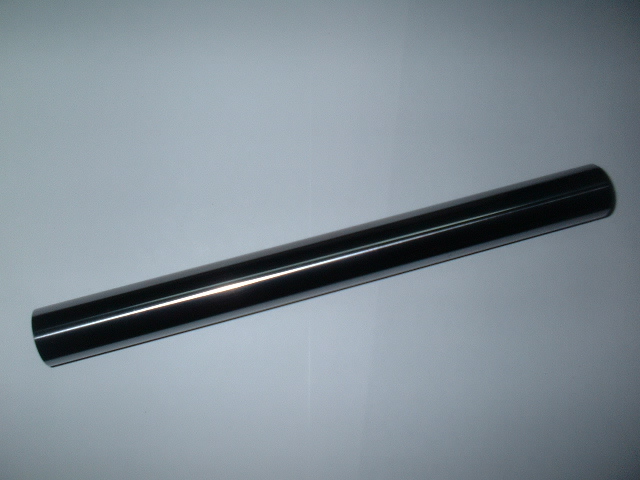Tipro use all kinds of resistance corrosion materials to manufacture fasteners, such as Titanium, Tantalum, Molybdenum, Zirconium and so on.
Titanium, Tantalum, Molybdenum and Zirconium - where corrosion problems exist, these materials may be the cost effective solution. Each material with its own unique physical, chemical and corrosion resistant characteristics has become a valuable tool in the Chemical and Chemical related industries.
Titanium is the most widely used of these three reactive metals. Primary applications include:
Chlorine / Caustic, Sodium Chlorate, Hypo chlorite, Nitric Acid, Terephtalic Acid, Adipic Acid, Acetic Acid, Pulp and Paper, Seawater, Geothermal, Refinery Operations, Flue Gas Desulfurization, Nuclear Waste Storage, Municipal Sewage Sludge, Toxic Waste Treatment, Off-Shore Technology, Naval, Fishing, and Medical.
Tantalum has an almost unlimited resistance to corrosion. Primary applications include: Sulfuric Acid, Mixed Acids,Hydrochloric Acid, Scrubbers, and Hydro chlorination.
| Titanium | Tantalum | tantalum |
ABOUT TITANIUM
William Gregor, a clergyman and amateur geologist in Cornwall , England , discovered titanium in 1790. However, it was not purified until 1910, and was not refined and produced in commercial quantities until the early 1950s. Since then,titanium production has grown by about 8% per year, and since the early 1960s its use has shifted significantly from military applications to commercial ventures.
Titanium is a metallic element whose unique properties including high strength, low density, excellent fatigue and corrosion resistance and low modulus make it the ideal material for aircraft, auto engine components. Developed primarily for the aerospace industry, titanium alloys have also found a growing use in Medical, Petrochemical, Pulp and Paper, Architectural, Naval and Sports applications.
The Grades and Sources of Titanium
Titanium alloys vary widely in their properties and appropriate applications.
Titanium Grade 1- 4 are pure Titanium, the other grades are alloys. Pure Titanium is used due to its high corrosion resistance, the alloys because of the extremely high strength to weight ratio.
C.P. Titanium is in its purest form, unalloyed with any other elements, and used primarily for its corrosion resistance.
It resists pitting, crevice and cavitations corrosion, erosion, and stress corrosion cracking in salt water, marine atmospheres, and a broad range of acids, alkalis, and industrial chemicals. There are four grades of CP in the U.S. , which are distinguished primarily by oxygen content. CP's yield strength ranges roughly from 25 to 65 KSI (thousand pounds per square inch).
Grade 4 has the highest yield strength; Grade 1 is the weakest.
Although pure titanium was valued for its blend of high strength, low weight and excellent durability, even stronger materials were needed for aerospace use. In the 1950s, a high-strength alloy called 6-4 (6% aluminum, 4% vanadium, 90% titanium) was developed, and found immediate use in engine and airframe parts.
Ti-6Al-4V ASTM 348 GRADE-5
6-4 alloy (6% aluminum, 4% vanadium, 90% titanium) is the most widely used titanium alloy, accounting for more than half of all titanium tonnage worldwide. It was the original miracle metal of the aerospace industry, due to its outstanding strength-to-weight ratio. It can be used in high stress applications, brake discs, calipers etc. An amazing 40% lighter than steel and far more resistant to corrosion, this makes it an idea choice for the serious racer. It's widely used in the aerospace industry, high performance engine components for Formula 1 and motorcycle racing!
Ti-3Al-2.5V ASTM 348 GRADE-9
Titanium 3-2.5 is an alloy of 3% aluminum, 2.5% vanadium, and 94.5% pure titanium. The strongest grade, called AMS 105, has minimum yield strength of 105 KSI, and a minimum ultimate tensile strength of 125 KSI. It has an annealed elongation of 15-30%, and a cold-worked minimum elongation (ductility) of 10%. It does not respond well to heat-treatment.
Instead, increases in strength come solely from cold working.
| Alloy | Specifications | UTS Min (PSI) |
.2%YS Min (PSI) |
%Elongation Min |
%RA Min |
|---|---|---|---|---|---|
| CP-1 | ASTM B348 Grade 1 |
35,000 | 25,000 | 24 | 30 |
| CP-2 | ASTM B348 Grade 2 |
50,000 | 40,000 | 20 | 30 |
| CP-3 | ASTM B348 Grade 3 |
65,000 | 55,000 | 18 | 30 |
| CP-4 | ASTM B348 Grade 4 |
80,000 | 70,000 | 15 | 25 |
| Ti 6Al - 4V |
ASTM B348 Grade 5 |
130,000 | 120,000 | 10 | 25 |
| Ti 3Al-2.5V | ASTM B348 Grade 9 |
90,000 | 70,000 | 15 | 30 |






